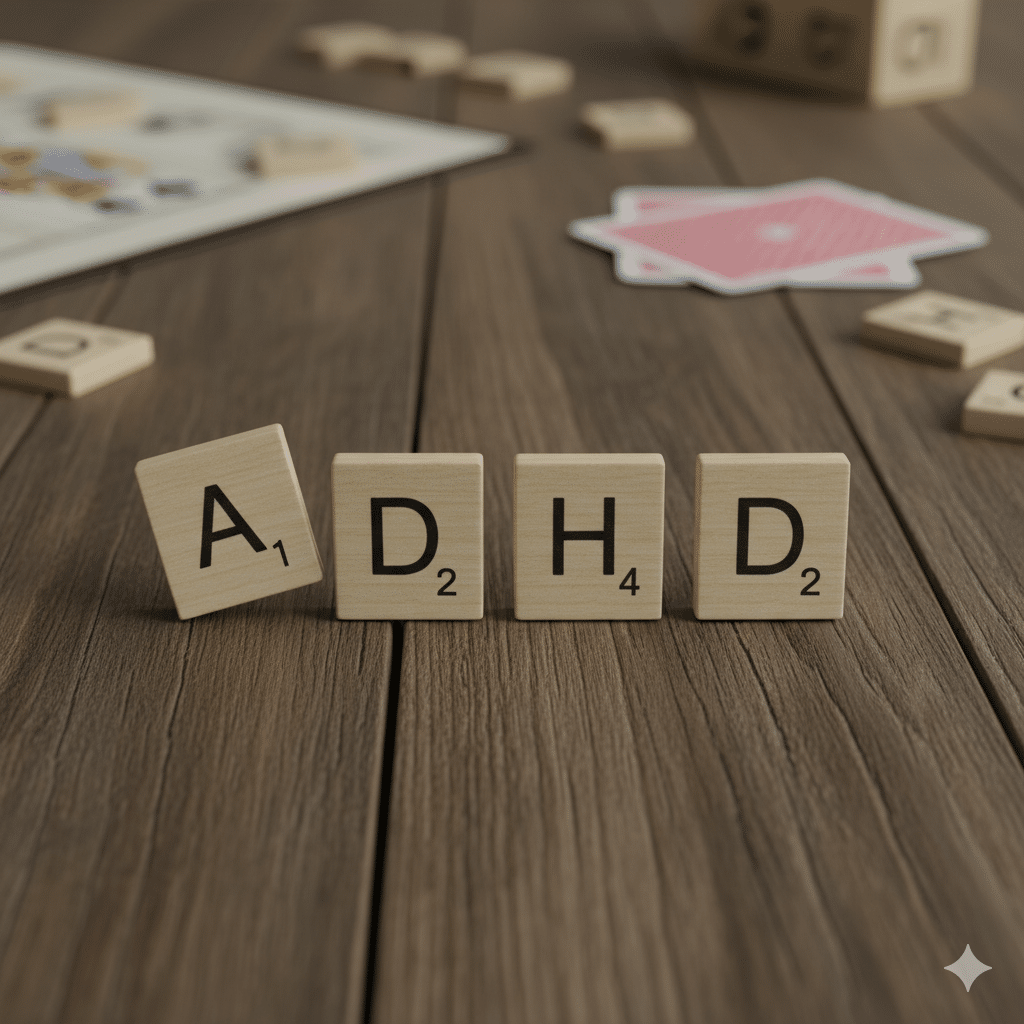Many parents notice their child is often distracted, struggles to finish tasks or might seem to have endless energy, and they wonder, “Is this just a phase or something I should pay attention to?” These behaviours might indicate ADHD.

What is ADHD?
ADHD stands for Attention-Deficit Hyperactivity Disorder, and it is more common than parents realise. It affects how children focus, control impulses, and manage their energy. While it can be very confusing at first, understanding ADHD helps parents see their child’s behaviour through a more compassionate and informed lens.
This guide will break down what ADHD really means, how to recognise it and how you can support your child both at home and in school.
Why Parents Should Understand ADHD
Raising a child today comes with many distractions, screams, busy schedules and constant stimulation. For children with ADHD, all of this can make it even harder to stay focused or calm.
Unfortunately, many parents still misunderstand ADHD. Some think their child is being naughty or lazy, while others believe it’s a sign of poor parenting. None of that is true. ADHD is not a result of bad behaviour or lack of discipline. It’s a condition that affects how the brain manages attention and impulse control.
Understanding what ADHD means, will help you meet your child where they are, not where you wish they would be. With the right structure, encouragement, and patience, children with ADHD can thrive and build strong self-confidence.
What ADHD Looks Like in Children
ADHD shows up in different ways. Some children find it hard to pay attention or concentrate on tasks, other can’t seem to sit still for long or act before thinking. Some experience a combination of both.
There are three main ways ADHD can appear:
- Inattentive type: The child often forgets things, gets easily distracted or struggles to stay organized. In this type of ADHD, the child may seem to drift off during homework or while doing simple tasks. They are often caught daydreaming during classes. They have trouble following instructions and even when they do, they might forget steps or get distracted halfway through.
- Hyperactive-impulsive type: The child talks a lot, interrupts others, fidgets constantly, or seems restless. The child could have trouble sitting still during meals or lessons. In class, they could blurt out answers without giving other children opportunities to answer.
- Combined type: The child shows both inattentive and hyperactive traits.
These signs don’t automatically mean a child has ADHD, but if they happen often and in more than one setting (like at home and school), it’s worth paying attention.
Recognising ADHD Early

Every child gets distracted or restless sometimes, but with ADHD, these behaviors happen more often and interfere with daily life. A child with ADHD might struggle to complete homework, forgets instructions easily, or have trouble sitting still even when others are calm. These patterns do not mean your child is spoiled or stubborn. They are signs that their brain works differently.
Early recognition is key. Many children go undiagnosed for years, which can affect their learning and self-esteem. Parents are usually the first to notice that something feels off, maybe their child needs constant reminders, rushes through tasks, or gets easily frustrated. Paying attention to these patterns and noting when and where they occur (at home, school, or both) can help you identify when it’s time to seek support.
If these behaviours have been consistent for six months or more and affect more than one area of your child’s life, it’s worth discussing your concerns with a teacher, school counsellor, or child psychologist.
Importance of Early Intervention
Recognising ADHD early makes a huge difference in how a child learns, socialises, and sees themselves. Early support helps children develop coping skills before frustration sets in. It also teaches parents how to guide behaviour calmly instead of reacting out of confusion or anger.
When ADHD is addressed early:
-
Children learn better strategies for focus, organisation, and self-control.
-
Parents and teachers can work together to create structured routines that reduce stress.
-
Self-esteem improves, as children start to understand that they are not “bad” or “lazy” they just learn differently.
-
Relationships strengthen, because both parents and children feel more understood.
Early intervention also helps prevent emotional struggles like anxiety or low confidence that can develop when children feel misunderstood for too long.
How Parents Can Support Early

1. Keep a behaviour journal
Note when your child struggles the most and what seems to help. For example, do they focus better after physical activity? Do they lose attention during long tasks? These notes help professionals understand your child better.
2. Talk to your child’s teacher
Teachers see your child in structured environments and can share what they observe. Ask about focus, impulse control, and classroom participation. Open communication ensures that both school and home support your child in the same way.
3. Seek professional help early
If you suspect ADHD, a child psychologist or paediatrician can guide you through proper assessment and diagnosis. Getting clarity early helps avoid guesswork and provides tailored strategies that fit your child’s needs.
4. Create structure at home
Children with ADHD thrive on consistency. Set clear routines for homework, bedtime, and play. Keep instructions short and simple, and use visual reminders when possible. Predictability helps reduce stress and confusion.
5. Focus on encouragement, not punishment
Positive reinforcement works far better than scolding. Praise small wins — finishing homework, remembering to pack their bag, or staying focused for a set time. Every small success builds confidence.
LagosMums has helpful guides on how to navigate misinformation about ADHD online
When to Ask for Help
It’s time to seek guidance if you notice that your child’s challenges with focus, impulsivity, or hyperactivity persist over time and begin to affect schoolwork, friendships, or family life. The earlier you ask for help, the better the outcome.
Don’t wait for things to get overwhelming before reaching out. Early support can help your child build coping tools that make school and daily routines much smoother.
Conclusion
Recognising ADHD early is not about labelling your child, it’s about understanding them better. The sooner parents notice the signs and seek help, the sooner children can get the right support to grow confidently and reach their full potential.
ADHD is not a limitation, but a different way of learning and experiencing the world. With early understanding, patience, and consistent guidance, your child can learn to focus their strengths and thrive in their own unique way.